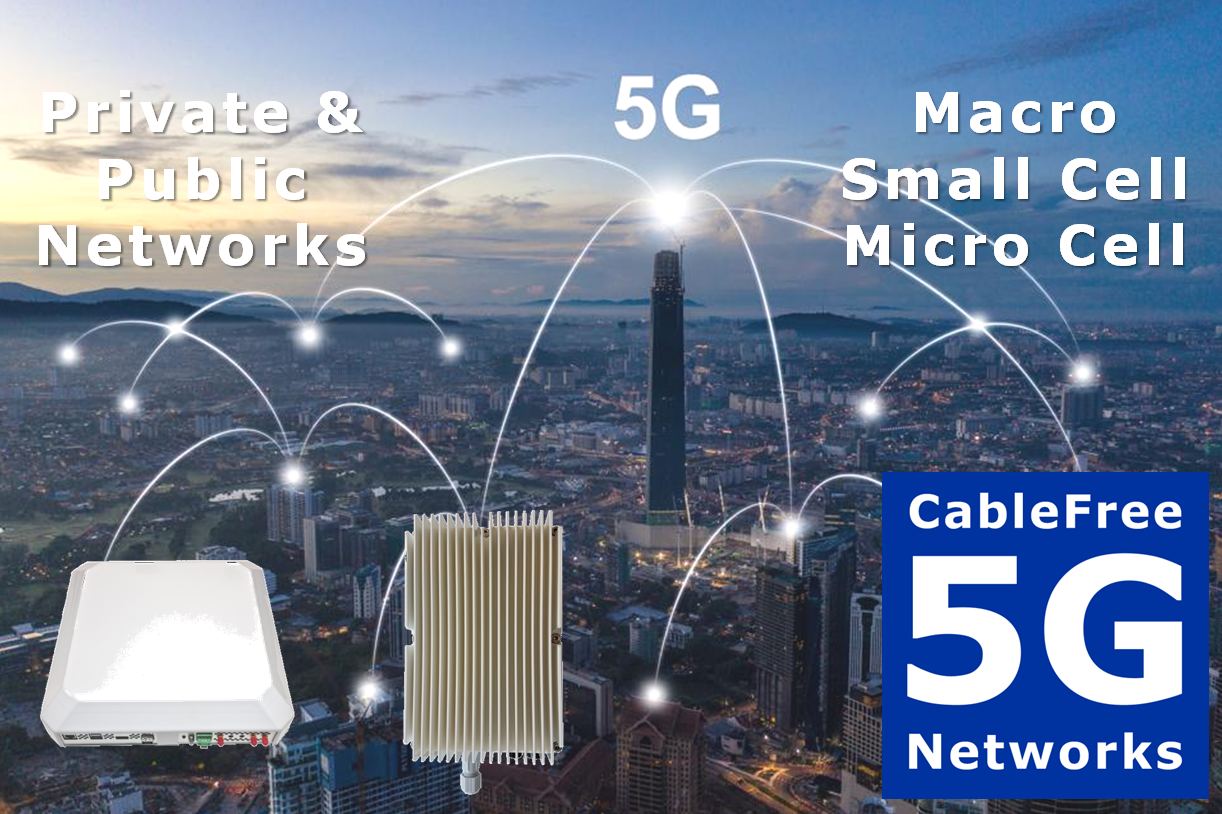
CableFree Private 5G networks have the potential to revolutionise campus networks by providing end users with numerous benefits, such as improved coverage, increased capacity, convenience, and enhanced network security. In this article, we’ll explore these and examine why a CableFree 5G Private Network is an excellent option for modern wireless network implementation.

CableFree Private 5G Network
A Private 5G network, utilising advanced technologies such as CableFree 5G radios, offers a range of benefits compared to traditional WiFi networks or even public 5G networks. Here, we’ll explain these benefits in detail:

Private 5G networks provide a FAR higher level of security compared to WiFi or Public 5G networks. Private 5G Networks offer dedicated and isolated network resources, making it more challenging for unauthorised access and potential cyberattacks. In 5G, the data is fully encrypted from the user device/terminal all the way to the 5G core. 5G encryption is to the highest commercial standards and so far has not been broken.
In a Private 5G network this core is usually physically “on site” and locally managed. This is crucial for industries and applications that handle sensitive data, such as financial institutions, healthcare facilities, and manufacturing plants.

CableFree 5G Indoor Small Cell for Private 5G
Private 5G networks offer superior QoS, ensuring consistent and reliable connectivity even in high-density environments. This is crucial for applications that require low latency and high reliability, such as industrial automation, robotics, and real-time video surveillance. There are many Quality of Service features designed into the 5G standard that ensure that QoS is far higher than available with WiFi, for comparison.
A related topic is roaming: When correctly configured, 5G can do seamless handover between adjacent cells, without dropping user traffic. WiFi cannot do this “true mobility”: only cellular standards can do this today.

Clean RF Spectrum is a major benefit for Private 5G compared to WiFi
Private 5G networks operate on licensed spectrum, which means they are less susceptible to interference compared to public WiFi networks, which operate in unlicensed spectrum with many other users trying to use the same frequencies. This is also particularly important in industrial settings where electromagnetic interference can disrupt operations. With dedicated spectrum, these networks can provide a more stable and predictable connection. In many countries, there is dedicated spectrum allocated for Private networks with cost-effective pricing.
Private 5G networks offer a significantly higher real-world capacity compared to traditional WiFi networks. They can handle a larger number of connected devices simultaneously without sacrificing performance. This is beneficial for scenarios like smart factories, where numerous IoT devices need to communicate seamlessly. Though the “headline figure” for WiFi capacity looks high, the real-world figures are generally 50% or less than these, due to various factors.